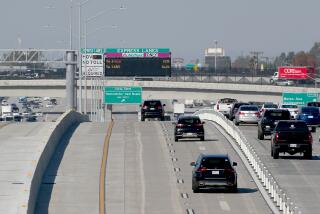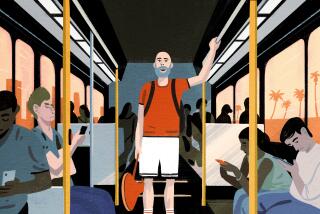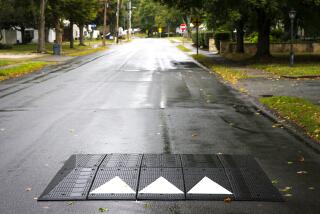Driverless cars coming soon to a road near you
Driverless cars sound more like science fiction than practical technology, but the advent of autonomous vehicles may be less than a decade away.
The California Department of Motor Vehicles has developed rules on when and how developers can test the computer-directed models on the road. Now the state is moving to the next step: How to incorporate driverless cars onto the state’s streets and highways.
But this is no easy job. California is essentially rewriting the rules for operating a vehicle on the public roadways and hashing out complicated liability questions. Should somebody have to sit in the driver’s seat? What happens if the car malfunctions, or if there is an accident? Would the passenger be responsible even if he or she didn’t operate the vehicle? Should the state require that someone be in the vehicle who knows how to drive it?
Autonomous cars could be the great equalizer – allowing greater mobility for the elderly and the disabled, who may not drive or have access to transit. But they may also have a big impact on how California spends its transportation dollars. There might be much greater demand to build more road lanes to accommodate driverless cars, and less demand to build public transit that shuttles the masses. Driverless cars could affect development patterns, making far-flung suburban communities more attractive for commuters who could nap or work while being whisked to work in their private vehicle.
As we get closer to a world of driverless cars, it’s time to start thinking beyond the logistics of licensing and liability, and start talking about how this technology will reshape the way Californians live, work and travel.
Must-read headlines from L.A. to CA:
Mayor Eric Garcetti: No raises for Los Angeles city workers, KPCC
As union contract negotiations get underway for Los Angeles city firefighters, police officers and most City Hall employees, Mayor Eric Garcetti said Monday he does not support any raises for city workers.
High lead levels in soil near battery plant prompt health warnings, Los Angeles Times
State regulators order Exide Technologies to perform more testing after elevated amounts of lead are found in the soil of homes and a preschool near the Vernon plant.
More than 100 marijuana shops shut down, L.A. city attorney says, Los Angeles Times
Mike Feuer is stepping up enforcement of rules restricting marijuana dispensaries. His staff is also focusing on landlords who rent space.
It’s illegal to play ball on sidewalks or in streets in Los Angeles, Curbed LA
It’s illegal to “play ball or any game of sport with a ball or football or throw, cast, shoot or discharge any stone, pellet, bullet, arrow or any other missile, in, over, across, along or upon any street or sidewalk or in any public park, except on those portions of said park set apart for such purposes” in Los Angeles, Flying Pigeon bike shop co-owner/activist/blogger Josef Bray-Ali points out.
Fracking exposes rift between Jerry Brown, Democrats, San Francisco Chronicle
Fracking has opened vast oil and natural gas deposits across the country, creating legions of fans and foes alike. Now the technology has exposed a rift between Gov. Jerry Brown and a very vocal part of his Democratic base.
ALSO:
Hire like Google? For most companies, that’s a bad idea.
I got 30 months in prison. Why does Leon Panetta get a pass?
Why a disclaimer for ‘Noah,’ a movie based on a religious story, not history?
Follow Kerry Cavanaugh on Twitter @kerrycavan and Google+
More to Read
A cure for the common opinion
Get thought-provoking perspectives with our weekly newsletter.
You may occasionally receive promotional content from the Los Angeles Times.







